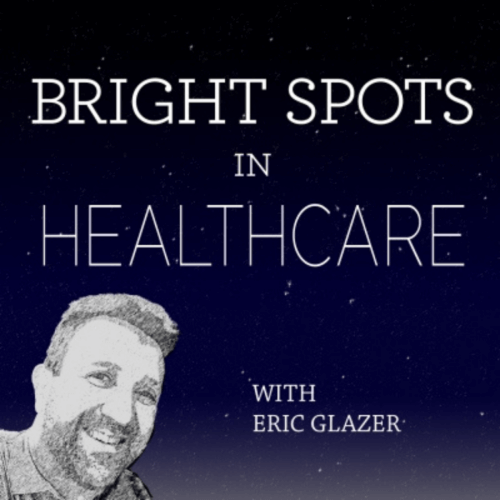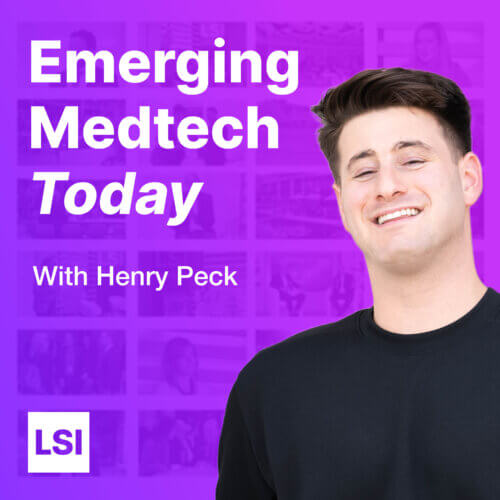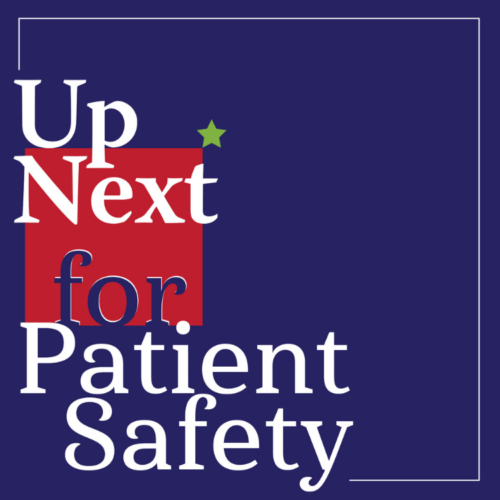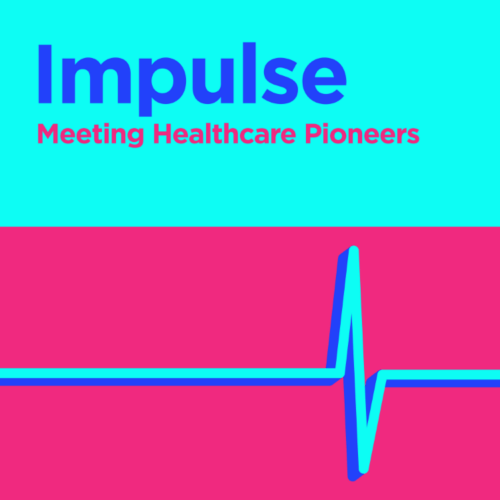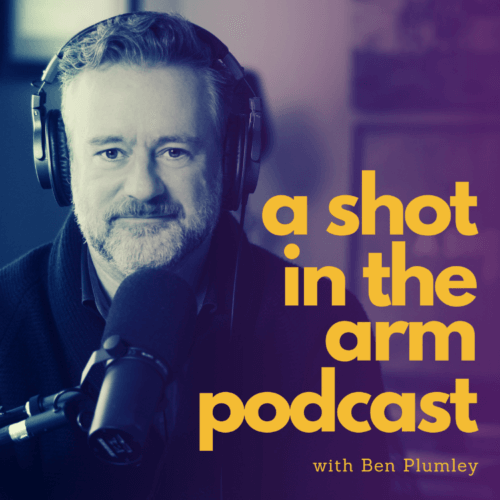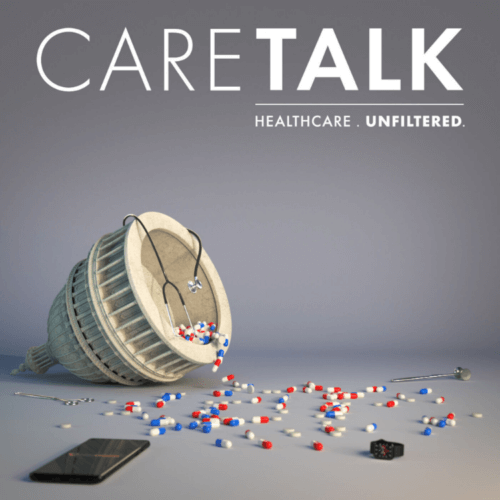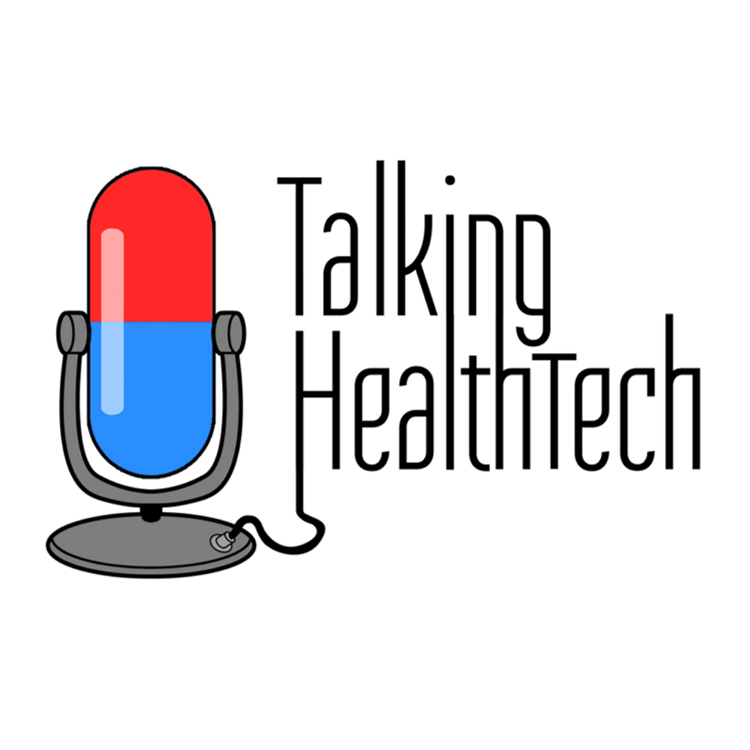
Talking HealthTech
Discussions with doctors, developers and decision-makers in Australian HealthTech
511 – from data to dollars: optimising the revenue cycle.
In this episode of Talking HealthTech, host Peter Birch speaks with Charles Lie from Healthscope, Cathy Ryan from Cabrini Health, and Dean Breckenridge from Ramsay Health Care about the hurdles private hospitals in Australia are dealing with. They dive into outdated coding rules, workforce shortages, and the hiccups in revenue cycle management. They also cover how AI and automation come into play, discuss policy and funding roadblocks, and share some handy tips for staying financially sustainable.This episode was recorded as a live session in partnership with InfoMedix, bringing together representatives from across Australia's digital health ecosystem, including private hospitals, vendors, consulting firms, and government bodies, highlighting a broad interest and engagement with the topics discussed.Key Takeaways:• Coding complexity is a real headache for hospital cash flow, highlighting the need for skilled coders and efficient systems.• Bringing AI and automation into healthcare isn't smooth sailing because of specific coding standards and existing inefficiencies.• Everyone needs to team up to reduce admin redundancies and make systems more efficient.• Public vs. private hospital funding models are another ball game, making financial sustainability a big challenge.• Simplifying funding models helps reduce the admin burden and improve the quality of patient care.Check out the episode and full show notes on the Talking HealthTech website.Loving the show? Leave us a review, and share it with someone who might get some value from it.Keen to take your healthtech to the next level? Become a THT+ Member for access to our online community forum, meet-ups, special offers, and more exclusive content. For more information visit talkinghealthtech.com/thtplus
March 26, 2025
510 – Interoperability: Closing care gaps for better outcomes
In this episode of Talking HealthTech, host Peter Birch speaks with Dr Monica Trujillo, Chief Health and Risk Officer at Telstra Health; Rob Reynolds, Vice President of Clinical Reasoning at Smile Digital Health; and Dr Janice Tan, Clinical Director at Telstra Health. Together, they explore the significance of interoperability in healthcare, discussing how health information exchanges (HIEs) and emerging technology play a vital role in closing care gaps and improving patient outcomes across various healthcare settings.Key Takeaways:Interoperability is crucial for effective healthcare delivery, enabling clinicians to access and trust comprehensive patient data. Embracing standards like FHIR is pivotal for creating cohesive health information exchanges.- Clinical reasoning elevates data to provide more relevant insights to clinicians, aiding in informed decision-making. This, in combination with improved data accessibility, empowers both clinicians and patients.To ensure equitable health outcomes, addressing care gaps is essential, especially in rural and regional areas. Australia can learn from international experiences and leapfrog towards better integrated care.Emerging technologies should empower rather than replace clinicians, and co-design between tech developers and healthcare professionals is vital to ensure practical and useful applications.Check out the episode and full show notes on the Talking HealthTech website.Loving the show? Leave us a review, and share it with someone who might get some value from it.Keen to take your healthtech to the next level? Become a THT+ Member for access to our online community forum, meet ups, special offers, and more exclusive content. For more information visit talkinghealthtech.com/thtplus
February 24, 2025
509 – The opportunity to implement safety and quality telehealth standards in Australia
In this episode of Talking HealthTech, host Peter Birch speaks with Lyndon Goddard and Dr Matthew Vickers from Eucalyptus about the evolution of the telehealth landscape in Australia over the past 12 months and the importance of regulatory standards in telehealth. This episode was recorded in the Eucalyptus studio.Key Takeaways:Evolution of Telehealth: The transition from asynchronous to synchronous telehealth models in response to new medical board guidelines has been a significant change, with positive feedback from practitioners and patients.Market Dynamics: The past year has seen a surge in telehealth clinics, especially those offering instant medical certificates and medical cannabis consultations. Regulatory scrutiny is increasing in these areas to ensure safety and compliance.AI in Telehealth: AI is gradually integrating into telehealth services, particularly clinical decision support and automation within digital health workflows.Call for Regulation: There is a strong need for standardised accreditation frameworks specifically tailored for telehealth services in Australia to ensure minimum safety and quality standards are met.International Comparisons: The UK’s approach to telehealth regulation, which includes multiple layers of oversight, offers valuable insights for potential frameworks in Australia.Check out the episode and full show notes on the Talking HealthTech website.Loving the show? Leave us a review, and share it with someone who might get some value from it.Keen to take your healthtech to the next level? Become a THT+ Member for access to our online community forum, meet-ups, special offers, and more exclusive content. For more information, visittalkinghealthtech.com/thtplus.
February 20, 2025
508 – Skin Deep: Revolutionising Skin Cancer Diagnosis with DermR Health
In this episode of Talking HealthTech, host Nathan Moore speaks with Stefan Mazy, the CEO of DermR Health Solutions. They discuss DermR Health's innovative approach to diagnosing skin cancer through their DermR Patch technology. Stefan shares his personal motivation behind the technology and the journey of developing a solution to improve diagnostic accuracy while reducing the burden on healthcare systems worldwide.Key Takeaways:DermR Patch technology offers a novel approach to skin cancer diagnosis using a microsampling tool that can potentially reduce unnecessary biopsies, which is projected to save significant healthcare costs and improve patient outcomes.The current global challenge with skin cancer diagnostics is the over-reliance on biopsies, with a significant percentage being unnecessary.The technology also addresses incorrect data classifications in skin cancer statistics, aiming to provide more accurate data for informed health decisions.The potential for nurses and other healthcare professionals to administer the DermR Patch, demonstrating the potential for optimising healthcare resources.The anticipated decline in GPs and rise in skin cancer cases by 2030 highlights the need for innovative diagnostic solutions such as DermR Patch.Check out the episode and full show notes on the Talking HealthTech website.Loving the show? Leave us a review, and share it with someone who might get some value from it.Keen to take your healthtech to the next level? Become a THT+ Member for access to our online community forum, meet-ups, special offers and more exclusive content. For more information visit talkinghealthtech.com/thtplus
February 19, 2025
507 – Transforming outcomes by advancing sustainable health
In this episode of Talking HealthTech, host Peter Birch speaks with Steve Gomes, the Managing Director of Rauland Australia and New Zealand, about integrating digital health technologies in healthcare and aged care settings. They discuss the development of the Concentric Care Platform, collaboration with clinicians, and the evolution of technology to meet the needs of health professionals and patients.This episode was recorded at the Rauland offices in Sydney, Australia, providing an in-depth look at how technology is implemented in Australia and New Zealand healthcare and aged care sectors.Key Takeaways:Rauland focuses on engaging with clinicians early in the technology deployment process to ensure solutions meet their needs effectively.The Concentric Care Platform has been a key development by Rauland since 2017, emphasising integration with electronic medical records like the single digital patient record system.Rauland’s approach includes a quiet environment in hospitals, reducing noise by directing alerts to the smartphones of assigned nurses and enhancing patient care and staff efficiency.The importance of partnerships and industry-standard integrations like HL7 and FHIR are discussed, ensuring smooth interoperability within the complex landscape of healthcare systems.Check out the episode and full show notes on the Talking HealthTechwebsite.Loving the show? Leave us a review, and share it with someone who might get some value from it.Keen to take your healthtech to the next level? Become a THT+ Member for access to our online community forum, meet ups, special offers and more exclusive content. For more information visittalkinghealthtech.com/thtplus
February 16, 2025
506 – Is a Health Information Exchange a Destination or a Journey?
In this episode of Talking HealthTech, host Peter Birch speaks with Alex MacLeod, the Director for Healthcare Solution Innovation at InterSystems, about the evolving landscape of Health Information Exchanges (HIEs). Pete and Alex explore how HIEs have developed over time, the practical use cases of these systems, and the lessons learned from global implementations, particularly in the US and Australia.Key Takeaways:Evolution of HIEs:HIEs have matured and often reinvented themselves, incorporating new use cases such as public health and AI to remain relevant and useful.Success Criteria:Effective HIEs provide early value through basic functionalities like real-time notifications and gradually layer on complex use cases, ensuring continuous utility and engagement.Engagement and Adoption:Early stakeholder engagement and inclusion of diverse perspectives from clinical and business sides are crucial for successful HIE implementation.Challenges in Measuring Impact: Quantifying the impact of HIEs on clinical outcomes and cost savings is challenging, but focusing on intermediary metrics like engagement rates and reduced readmissions can provide valuable insights.Data Utility and Privacy:Balancing comprehensive data collection with privacy considerations and practical adoption practices is crucial for long-term success.Check out the episode and full show notes on the Talking HealthTechwebsite.Loving the show? Leave us a review, and share it with someone who might get some value from it.Keen to take your healthtech to the next level? Become a THT+ Member for access to our online community forum, meet-ups, special offers, and more exclusive content. For more information visittalkinghealthtech.com/thtplus
February 13, 2025
505 – Reaching your destination healthy and well!
In this episode of Talking HealthTech, host Sophie Turner speaks with Whitney Luxford, who has extensive experience in aviation medicine and recently founded fit2fly. The discussion dives into Whitney’s career journey from paramedic to aviation medicine specialist and explores the innovations introduced by fit2fly to streamline the medical clearance process for airline passengers.Key Takeaways:Aviation Medicine Insights: Whitney shares her career journey, integrating her experience as a paramedic and her pivotal role in setting up a medical department for Virgin Australia.In-flight Medical Events: An overview of frequent in-flight medical events and their challenges, including costly diversions and emergency landings.fit2fly Solution: fit2fly aims to digitize and expedite the medical clearance process for airline passengers, significantly reducing approval times from weeks to minutes.Technological Integration: The platform leverages clinical algorithms and decision trees to provide immediate clearance, reducing passengers' anxiety and airline inefficiencies.Future Prospects: Whitney outlines plans to incorporate disability and accessibility travel information into the fit2fly platform, further simplifying the travel process for passengers with medical needs.Check out the episode and full show notes on the Talking HealthTechwebsite.Loving the show? Leave us a review, and share it with someone who might get some value from it.Keen to take your healthtech to the next level? Become a THT+ Member for access to our online community forum, meet ups, special offers and more exclusive content. For more information visittalkinghealthtech.com/thtplus
February 11, 2025
504 – Secure and Simple: Imprivata’s Approach to Healthcare Authentication
In this episode of Talking HealthTech, host Peter Birch speaks with Jason Potts and Jamie Robertson from Imprivata about their roles, the company's solutions, and the digital identity challenges in healthcare.This episode was recorded during Digital Health Week New Zealand 2024, hosted by HiNZ, and dives into how Imprivata is helping healthcare providers manage secure access to patient information across various settings.Key Takeaways• Imprivata's Core Function: Imprivata focuses on digital identity solutions, primarily offering a simple and secure way for healthcare professionals to access multiple applications using technologies like Tap and Go and multifactor authentication.• Global Application: The solution is implemented globally, from large hospital systems to smaller clinics and commercial environments such as banking and gaming.• Local Context: In Australia and New Zealand, Imprivata adapts its workflows to fit local healthcare systems, integrating large EMR systems and smaller platforms.• Passwordless Journey: Imprivata is moving towards a passwordless environment, incorporating facial biometric authentication and other innovative approaches.• Mobility in Healthcare: They offer solutions for secure access via mobile devices, essential for clinicians working remotely or in various locations.Check out the episode and full show notes on the Talking HealthTechwebsite.Loving the show? Leave us a review, and share it with someone who might get some value from it.Keen to take your healthtech to the next level? Become a THT+ Member for access to our online community forum, meet-ups, special offers and more exclusive content. For more information visittalkinghealthtech.com/thtplus
February 9, 2025
Talking HealthTech
Conversations with Doctors, Developers and Decision Makers to promote innovation and collaboration for better healthcare enabled by technology. Because collaboration begins with conversation.
Host

Peter Birch
Peter Birch has worked in management roles in healthcare organisations for over 15 years; big ones and small ones, innovative start ups and slow moving beasts, he’s seen all different kinds. Pete has experienced first hand the exciting developments and the frustrating stagnation's of all the ups and downs in health, as well as the impact to businesses, investors, doctors, and patients.



